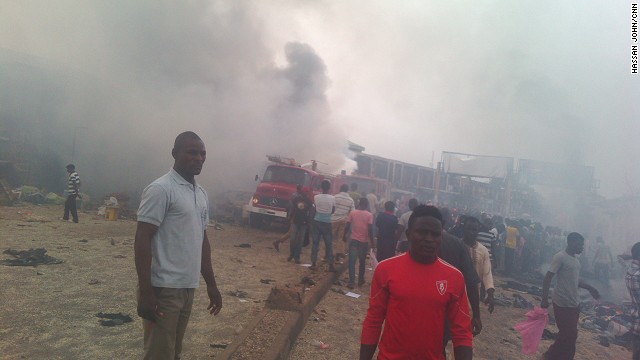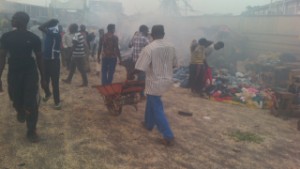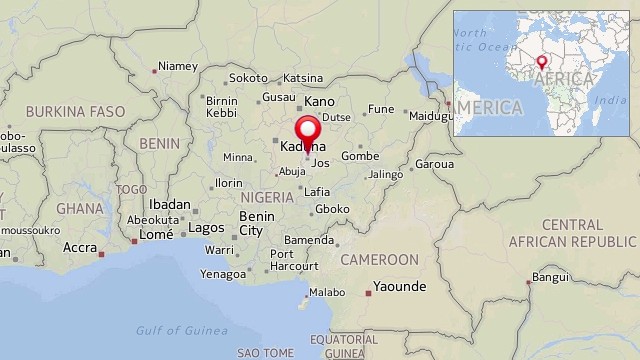A
seven metres high fence separating Morocco and the Spanish enclave of
Melilla stands between the dreams of thousands of African migrants
seeking a better life in Europe.
It takes just two minutes that seem like a lifetime to jump over the
triple fence dividing Spain's North Africa enclave from Morocco, but
they are two minutes full of risk and expectation.
Immigration has always been a controversial matter in the European
Union but with the European elections looming and the escalation of
activity in the Moroccan-Spain border in the last months, migration has
earned an important place in the political agenda.
Some 1,074 people breached the 12-kilometre-long fences in the whole
of 2013 and more than 1,600 have done so since the beginning of 2014.
After travelling for three months from Mali through the deserts of
Algeria, 17-year old Keita Mohammed reached Morocco and camped in Mont
Gurugu just outside the city joining hundreds of fellow countrymen who
are preparing to jump the fences or to swim along the coast.
Poorly dressed for the rough hills of the Gurugu, they walk several
kilometres every day carrying food and water from a small town at the
bottom of the mountain to the camp.
Keita is conscious that he is preparing to storm the border and knows
it is illegal, but said sub-saharan Africans are forced to do so in
order to seek opportunities.
"If Africa had the resources and if it were God´s will we would never
move to Europe. The only reason why we move to Europe is because we
have to. Economically, logistically, technologically Europe is very
strong, politically and I would say even morally they have the head. The
big problem we have to face is that we don´t have the resources," he
said seated on a rock in the hills.
Sleeping in improvised tents made from plastic bags and canvas some migrants expend up to one year of their life at the Gurugu.
28-year old Nicola has been living in Morocco for two years one of them in Mont Gurugu.
He had to leave his son behind in Cameroon in an effort to pursuit a better life in Europe as a mechanic.
Blind from one eye after suffering cuts in the cornea in one of his
three attempts to jump over the fence chances to succeed in his quest
seems to wane.
"We live very poorly in Gurugu. We spend day without eating. The best
part of the time we hare injured. Those who wear uniform beat us. I´m
talking about all the black Africa, we are all victims. We are
continually chased by Moroccan police. We always meet challenges both in
Moroccan and Spanish soil," he said next to the camp from which it is
possible to see Melilla.
Spain has more than doubled the strength of security forces at
Melilla after hundreds of migrants have stormed the border in recent
months.
Using CCTV cameras and pressure sensors Spanish police controls the perimeter from their control centre in Melilla.
They can even detect the exact point in which the wire has been cut.
But not event the dissuasive presence of police stretching from cost
to cost can prevent immigrants from all over Africa to regularly dare
the razor-wire fences.
Melilla´s Government delegate Abdelmalik El Barkani said Europe had
to address the situation and agree common policies to prevent illegal
immigration.
"As I said at the beginning we should have a common caring policy
among every European Union countries with the countries of the migrants.
Hence we would have a regularised immigration so the migrant willing to
come into Europe will do it with his documentation through an official
border, not risking his life, without the help of mafias and with
chances to integrate in any of the 28 countries which form the European
Union socially and in working life," he said the day before the European
Elections campaign was launched.
In February, the European Union asked Spain to explain why police had
fired rubber bullets in warning when a group of African migrants tried
to wade and swim to Ceuta.
Fifteen died drowning and the shots could have caused panic among the
migrants, according to Cecilia Malmstrom, the European Commissioner for
Home Affairs.
Many of the migrants who illegally arrive in Melilla had to pay
around 1.000 euros (1.300 U.S. dollars) to mafias that help them travel
from their countries to morocco and cross the border hided in false
bottomed cars or small vessels.
Once in Melilla the migrants are free to move and try to make a
living by helping people park their vehicles on the streets or cleaning
cars.
Immigrants from sub-Saharan Africa usually enter Ceuta and Melilla without identification papers.
Spain houses them in overcrowded processing centres in the
territories while trying to establish their identities in order to send
them back to countries with which it has repatriation agreements or
conceding them the legal residence depending on the agreement.
Although many arrive with prosperity dreams hoping to integrate the
society and find jobs that would help them send money to their families,
reality might be different.
Spain´s youth jobless rate amongst the under 25s is over 55 percent
and many Spaniards are leaving the country seeking a better job position
in Europe and South America.
Cameroon born Gerard jumped over the fence two months ago and has since been leaving in the temporary immigration centre "CETI".
"Life is about decisions. Anyone who wants to come (to Europe) has to
think it very wisely because he will meet many difficulties to arrive
here. Many stages and obstacles for example death, death," the 18- year
old said.
He lost a friend during his travel from Cameroon to Melilla and knows very well the harness of the endeavour.
Every Monday, Wednesday and Friday he joins hundreds of CETI
residences at a nearby pitch where they play football leaving their
problems aside for a few hours.
"If God gives me the chance to be here and I make it to Europe I will
make everything to become a good person for the society," he said clad
in his football gear.
Now he dreams to become a professional football player and perhaps
travel to another European country where the labour situation is better.
On Sunday (May 25) Europeans are called to cast their votes under the cloud of abstention.
A survey published by the Centre of Sociological Research in the
daily el Pais on May 9 shows voter intention for the PP at 33.7 percent
and 31 percent for the Socialists marking a significant fall from
results in 2009 when the PP received 42.23 percent of the votes or 23
seats and PSOE got 38.51 percent, or 21 seats.
Overshadowed by the economic crisis and jobless, perhaps immigration
policies are not high in the agenda of Spaniards voters but with illegal
immigration ascending to new heights politicians will have to work on
common policies to favour agreements to regularised the entrance of
migrants to the European Community



























 Massive explosion rocks Nigeria
Massive explosion rocks Nigeria
 Map: Jos, Nigeria
Map: Jos, Nigeria